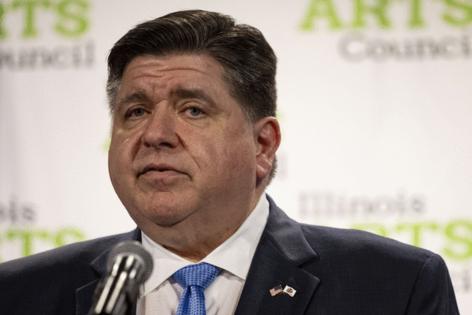Commentary: Illinois Gov. JB Pritzker, if you want to solve problems, lose the contempt
Published in Op Eds
Illinois Democratic Gov. JB Pritzker recently gave a speech in New Hampshire that lit up partisan circles thrilled with his fiery and combative tone.
“The reckoning is here,” Pritzker said while issuing a thunderous call for mass mobilization and disruption to counter President Donald Trump’s agenda. He said the American house is on fire, a raging “five-alarmer.”
“If it sounds like I’m becoming contemptuous of Donald Trump and the people that he has elevated, it’s because I am,” he said. “You should be, too.”
It’s easy to understand the impulse to accept the governor’s invitation, and the notion that the only way to fight contempt is with more contempt. After all, Trump seems to revel in the art of escalation: On his social media platform Truth Social, he referred to Democrats as “Radical Left Lunatics” and said, “They have lost everything, especially their minds!”
In his speech, Pritzker went on to say that “there’s a way out of this mess,” and I wholeheartedly agree. But it’s not through contempt. Contempt is a bad strategy because it doesn’t solve problems. It stokes a desire for revenge. It backfires. It all but guarantees that your opponent will dig deeper into the animosity between you. Contempt could never get us “out of this mess” because it’s what got us into this mess.
I’d like to stress an alternative: Rather than make our arguments with contempt for the other side, make the arguments with dignity. Treat the other side like they matter. In contrast to contemptuous speech, treating people with dignity recognizes the inherent worth of every person and leaves space for holding people accountable by focusing on facts, actions, decisions and outcomes.
The warmup to the Democratic nomination has begun, evidenced by the fact that high-profile politicians are showing up in New Hampshire — an early presidential primary state — hoping to set a course to Election 2028. Democrats and Republicans alike would do well to recognize that increasing polarization is the most likely result of aggressive posturing, spinning us into doom loops of despair.
Politicians have a special obligation, by virtue of their outsize public platforms, to remove contempt from political discourse. As the Harvard University professor, behavioral science expert and bestselling author Arthur C. Brooks has stated, “If you listen to how people talk to each other in political life today, you notice it is with pure contempt.” He continued: “If we want to solve the problem of polarization today, we have to solve the contempt problem.”
Treating people with contempt may sound tough, but it doesn’t hold people accountable. Demonizing, name-calling and belittling stir up anger that distracts from the problems we need to fix, locking us in opposition and divorcing us from one another as Americans.
At its worst, contempt leads to violence.
Contempt will start a fight that distracts us from the facts, and that serves the cause of people who don’t want to be held accountable. And before one says, “But wait! The other side doesn’t deserve our niceties and politeness,” let me remind readers that treating people with dignity doesn’t mean admiring them. It’s not saying that every viewpoint is valid. It’s simply saying that treating people with dignity encourages their best and discourages their worst.
And it’s not only true in politics. Research shows that contempt ruins marriages and relationships. It can turn toxic otherwise-healthy workplace cultures. Indignities cut to our core and, some research suggests, can sometimes feel as painful as actual physical harm.
If people demand it, dignity could play a winning role in politics and policymaking. Imagine a world where treating each other with dignity is a mark of patriotism, a measure of our national well-being and an indicator of future potential.
Contempt might be able to score points in the short term, but it ensures that we all lose eventually. To avoid that end, I’m challenging myself to engage in a new kind of patriotism, one that seeks above all to ease divisions and solve problems. I heard this more hopeful kind of rhetoric in Pritzker’s speech, too. He called for an end to the “climate of retribution.” And it’s that part of his argument that I’d like to hold up as the best example of how we can all move forward together.
“There are plenty of people in this country who hold opinions that I find abhorrent,” Pritzker said. “But my faith, and our Constitution, dictate that I fight for their freedoms just as loudly as I defend my own.”
Agreed, Gov. Pritzker. That’s how to save a house on fire.
_____
Timothy Shriver is a co-creator of the Dignity Index, a tool designed to ease divisions, prevent violence and solve problems. He is also chairman of the Special Olympics.
_____
©2025 Chicago Tribune. Visit at chicagotribune.com. Distributed by Tribune Content Agency, LLC.




























































Comments